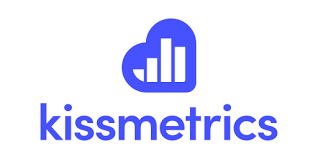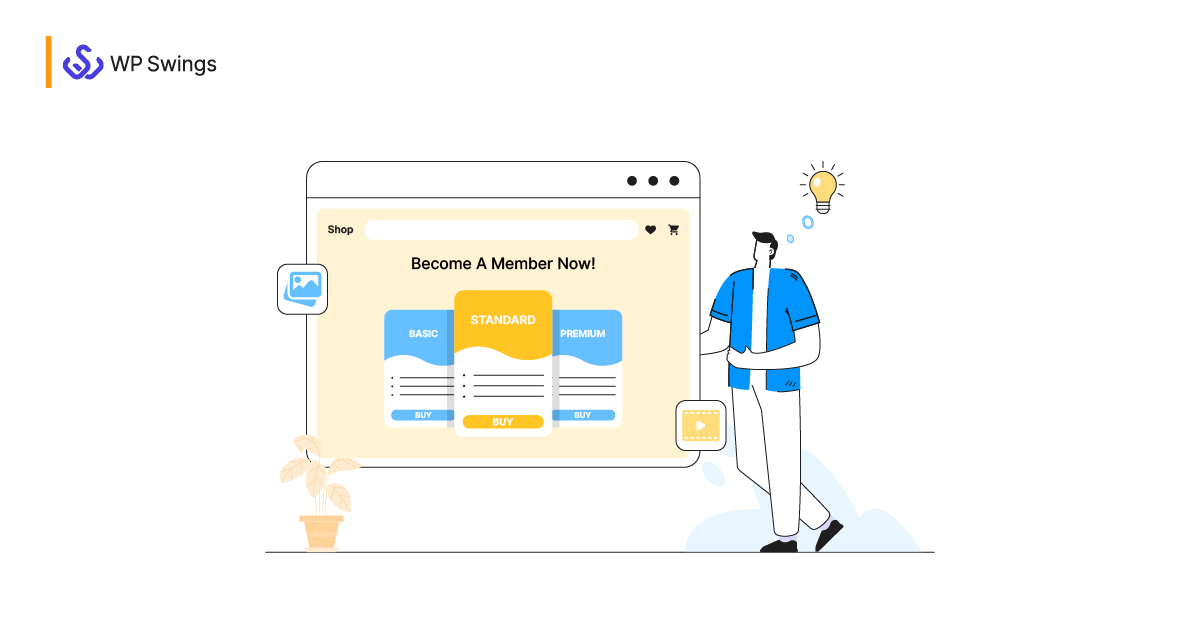The right eCommerce tools can make or break your business. Hence you need the best tools for online business. Whether a start-up or a well-established business, every online store needs innovative eCommerce tools to carry out specific operations. With the ever-increasing competition for revenue generation, eCommerce brands are actively chasing down customer satisfaction through high personalization. Online stores are getting tough to beat.
That is to say, unlike traditional retail stores, the eCommerce business is additionally more about new trends and technology. Therefore, eCommerce tools have a high usability and success rate for optimizing your store or researching new business ideas. It starts with keyword research tools, then trends to website builder tools, designing tools, process management, CRM tools, etc.
The best eCommerce tools can take your online store from bottom to top. Hence, choose your eCommerce toolkit wisely.
Crunching down, still, the problem being, there are a lot of eCommerce tools available. Pick what? We will list some of the best eCommerce tools for your business that bring your sales up like LOADED and fill your pocket with REVENUE. That is to say, eCommerce tools for small businesses may or may not work for enterprises. But, don’t worry, we have got it all covered. Soak up and read ahead.
eCommerce Toolkit List
Each category of the following eCommerce tools serves an extensive function in the industry. You can choose from so many online business tools. That’s why we compiled this list of top eCommerce tools. Before you spend a bit of luck trying everything there is, find out what’s worth your time and money and what’s not.
Market Research Tools in Our eCommerce Toolkit
In 2020, e-commerce revenue in the United States was 431.6 billion US dollars. According to Statista’s Digital Market Outlook, revenue will reach 563.4 billion dollars by 2025. If you too want to participate in the booming eCommerce revenue, market research tools for understanding your product and service demands are the first in our eCommerce toolkit list.
1) Google Keyword Planner
The Google Keyword Planner tool is a free eCommerce research tool. It assists you in finding new keywords suggestions for your products, website, and services. You can view estimated monthly searches and determine the cost for your ad to appear on a keyword. As a result, it makes organizing your keywords easy that in turn aids you in developing new campaigns.
To begin, it’s important to remember that while keyword planners can provide insights into keyword targeting, other factors determine campaign performance. For example, your bid, budget, product, and customer behavior in your industry can all impact the success of your campaigns. Use this eCommerce tool to become one of the most popular eCommerce stores.
2) Google Trends

You get access to what topics and queries have been popular over a specific time. It is a handy tool for reviewing the success of a company’s SEO strategy. Google Trends is an online tool that helps users visualize and discover trends in people’s search behavior within Google Search, News, Images, Shopping, and YouTube.
3) AnswerThePublic
AnswerThePublic is a free search listening tool for market, customer, and content research. I personally was impressed to see a whole lot of questions it gives you with just a single keyword. With the pro version, you get
- unlimited daily searches
- alerted to new suggestions
- compare data over time
- organize your research data
4) Ubersuggest
eCommerce tools are useless if you either use the wrong ones don’t know how to use the right ones. Visit Ubersuggest and type in your desired keyword(s) in the search bar. Thereafter, Press ‘Enter’ and bam! Your keyword search results appear. Consequently, pick a few and get to writing. Or, if you still can’t allow time to make this happen, hire a content writer or find a service that can help with this.
Additionally, it offers you keywords and content ideas. But, there is a drawback to this free eCommerce tool. It allows you to perform only three searches per day. However, it only gives you the data of the top nine keywords with their volume, CPS, and SEO difficulty that you can export in a CSV file.
Online Business Tools for Competitor’s Research
The keyword research tools give you insights into what is happening around in the web and eCommerce world. There are multiple such free tools for online business. Additionally, some tools fit under eCommerce market research and act as an effective competitor analysis tool. Certainly, it is an essential part of the eCommerce toolkit.
5) Semrush
Semrush is an SEO tool that does your keyword research, tracks the keyword strategy, carries out competitor analysis, runs an SEO audit of your blog, looks for backlinking opportunities, and lots more. Additionally, this eCommerce tool can assist in PPC, SMM, PR, Content Marketing, Marketing Insights, and Campaign Management are some of the services available.
You can take the 14-days free trial. Additionally, SEMrush offers three monthly subscription options: Pro for $119.95, Guru for $229.95, and Business starting at $449.95. All three are recurring subscriptions.
6) Ahrefs
Ahrefs offers a complete SEO toolset that anyone, pro or beginner, can use. It is one of the best research tools for eCommerce. With a seven-day trial for $7, you can surely give it a try. To elaborate, Ahrefs include:
- analyzing internal backlinks
- monitoring outbound links
- seeing ranking history
- getting total search traffic estimations
- finding link prospects with content explorer, etc.
7) Mozbar
The MozBar provides at-a-glance SEO metrics for websites and the results in Google’s search listings. A must-have when doing lots of competitive research. Available for Firefox and Chrome.
Moz Pro membership gives you a way to a broad type of custom keyword rankings SEO tools. Above all, the industry’s leading SEO toolbar – over 800,000+ users and climbing – MozBar gives you instant metrics while viewing any page or SERP.
8) AdWords
AdWords keeps changing its sign-up system. If you have an account and can check it out, the keyword planner can help. If you can’t, or it keeps telling you to add a credit card, use Keyword.io.
Shopping Cart Tools In Our eCommerce Toolkit
Starting an eCommerce business is even better when you know the right shopping cart tools. After all your market research, you need to know the best online store builder. In other words, next in our eCommerce toolkit, we will discuss platforms where you can build eCommerce stores.
9) WooCommerce
WooCommerce is one of the easiest online store builders supported by WordPress. This best and most popular eCommerce platform offers the smartest options to extend themes and responsive designs, easy website management, advanced eCommerce functionality, and SEO. Above all, WooCommerce is completely free, although you will need to purchase your own hosting and if you’re interested in premium plugins. WooCommerce is our best-recommended eCommerce tool for online business.
10) Magento
Magento is an advanced cloud business stage with an open-source ecosystem. It is adaptable for B2C, B2B, and mixture arrangements. Magento reaches out past the shopping basket for each shoppable experience, including email, portable, coming up, and commercial centers.
- Firstly, it’s exceptionally excellent with loads of highlights, yet in addition, genuinely mind-boggling. Additionally, a fantastic alternative for stores with the skill and additionally spending plan to look after it. Yet, If we talk about amateurs, then it is risky.
- That is to say, for those new to eCommerce, WooCommerce (see beneath) is a vastly improved fit.
- Above all, Magento can be coordinated with numerous installment portals. It can acknowledge installments through PayPal, Google, and Amazon. Frequently, your store can acknowledge installments from everywhere throughout the world.
11) Shopify
Shopify is a complete eCommerce game plan that empowers you to set up an online store to sell your items. It allows you to mastermind your things, change your retail exterior, recognize Mastercard portions, track and respond to orders — all with several snaps of the mouse.
Is Shopify great? Numerous clients concede that it has a great plan, which is why they pick this eCommerce stage in any case. Also, there are a ton of formats that are accessible to clients.
When you develop the business, you can generally move to a more component-rich, flexible arrangement. However, from the get-go, it doesn’t bode well to make a considerable interest in a shopping basket before you have a setup business.
It offers three different plans for its users, starting at $29 per month. Moreover, you can start a 14-day free trial anytime.
12) BigCommerce
BigCommerce offers a simple user interface to add products and allows an easy credit payment process. Ir supports multiple payment options that encourage more sales. For instance, eBay integration, Amazon integration, Google Shopping integration, etc. Moreover, it supports WordPress integration and cross-channel commerce. BigCommerce is one unified eCommerce solution delivering a B2B2C shopping experience.
WooCommerce v/s BigCommerce: Which eCommerce Platform Suits Your Online Business?
Before considering any of the eCommerce store builders, you should compare them thoroughly. Read our article which will help you decide better.
13) Squarespace
Squarespace is yet another website builder. You can just get started in three steps: Create a website, explore tools (including blogging tools) you want to add, and market your business. Additionally, it has built-in SEO and analytics, mobile store editing, and custom templates that fit your business. Squarespace personal plan starts at $16 per month which goes up to $54 for the advance plan.
Which Is the Best and Most Reliable Website Builder? WooCommerce
Out of all other options, I strongly suggest you to use WordPress to build your website and WooCommerce for your online business. From small stores to enterprises it is also the best eCommerce platform for wholesale. Why? Here are some comparison articles supporting my recommendation:
Top eCommerce Tools for Web Hosting
There are multiple hosting platforms that call themselves the best hosting eCommerce hosting sites. Luckily, in our eCommerce toolkit, we have the best option for you, WPEngine. Web hosting for an eCommerce business is like the lifeline of your online store. It should support cloud hosting, offer CDN, security, and server reliability. So now, let’s dive into the hosting platforms in our eCommerce toolkit:
14) WPEngine
WPEngine is the #1 platform for WordPress hosting. It is secure, saves time, improves your website speed, and creates mobile-first approach websites in minutes. The support is dedicated, so any issue is resolved in no time. WP Engine is much more than worthy of hosting your WordPress pages, even if you run a corporate site, due to its excellent uptime, dependable customer service representatives, and marketplace versatility.
WPEngine pricing plans:
- Managed WordPress Plan starts @ $25
- eCommerce Solutions starts @ $63
- Advanced Solutions
Get Started With WPEngine Hosting Platform
Since you are here and deciding which hosting platform to choose. Stop here and check out the special offers WPEngine has to offer for MakeWebBetter customers.
15) Other Hosting Platforms
- Firstly, GoDaddy has a pretty good U.S.-based technical support and cheap hosting provider. But the user interface and control panels are less alluring and confusing for the user, especially the newer ones.
- Secondly, HostGator gives a free first year of domain registration and SSL certificate. The oldest and biggest hosting provider in the industry offers an uptime of 99.93%<. Its WordPress hosting starts monthly @ $5.95
- Finally, Bluehost, WordPress recommended hosting offers 99.99% uptime WordPress optimized hosting starting at $39.99 a month.
Security Tools for eCommerce Site
If you want to scale your online business, security is an essential factor. eCommerce involves regular transactions. Hence, the privacy of your customers’ sensitive information, payment details, etc. becomes a priority. Firewalls, SSL certificates, biometrics, threat detection tools, etc. make your business cyber secure. To point out the best security tools for eCommerce stores are as follows:
16) Sucuri Security
Sucuri is a complete globally recognized website security, protection & monitoring authority focussing on WordPress. Owned by GoDaddy, it is free for WordPress users. Improve your eCommerce store’s security posture with auditing security activity, file integrity monitoring, remote malware removal, and security hardening. However, firewalls are supported in it’s premium version.
17) McAfee
McAfee SECURE is a well-known brand in the security industry. They provide trusted security to Shopify merchants. It helps merchants and customers trust by automatically scanning stores for data breaches, malware, and malicious activity. In fact, McAfee Secure displays safety checkmarks to inform customers about the security of each page.
18) Jetpack

19) WPScan
WPScan is a WordPress security scanner that detects vulnerabilities in your eCommerce store beforehand. It makes use of its own hand-curated WPScan WordPress Vulnerability Database. It also looks for other security issues that do not necessitate the use of an API token.
Security Plugins In eCommerce Toolkit
Choose the top eCommerce tools for your online store security
Project Management Tools for Online Business
With updates and refinement in processes, the eCommerce business gets too vast to manage alone. If you have a team working behind your successful eCommerce store, you should go for project management software. A project management tool allows you to create a task hierarchy for efficient and effective completion quickly.
Additionally, it allows you to specify which actions are sequential and which tasks are interdependent. As a result, the team’s job becomes easier to complete. It can be any minor task you decide to complete within a specific time.
20) ClickUp
Click Up is one of the best process management tools. ClickUp also happens to be the choice of our MakeWebBetter team. So, here I am vouching for its practicality. Consequently, it offers complete customizations (colors, modes, custom layouts, hotkeys & shortcuts, assignees, statuses, etc.). It provides:
- Firstly, Real-time editing.
- Secondly, creating tasks ( divide them into subtasks, estimate & track time).
- Thirdly, 15+ powerful views.
- Fourthly, creating documents & quick notes.
- Above all, it also integrates with Zoom, Time doctor, Zendesk, Slack, Gmail, etc.
21) Monday

22) TeamWork

Customer Management Tools
eCommerce is all about managing customers online. With an increase in sales and customer base, you start getting great feedback and suggestions too. In that case, customer management tools come handy as an eCommerce toolkit essential.
23) HubSpot

If you own a small business and don’t want to invest in CRM, the accessible version of HubSpot’s client management tools is ideal. Furthermore, we all know that HubSpot has one of the most extensive online training libraries, so you can also take advantage of that.
You can also integrate it with WooCommerce, Google Calendar, and a few other resources to help manage more things in one place.
24) Mautic
Mautic is a powerful open-source marketing software. It is a platform that provides you with the most significant level of integration and deep audience intelligence.
Most importantly, it can take actions and automate them based on your visitors’/customers’ behaviors. It enables you to make more meaningful connections with your customers interacting with your website.
25) Zendesk

Manage Customer Relations With Best CRM Integrations for eCommerce Business
CRMs are the best tools for eCommerce stores. They excellently manage your customers. And imagine integrating them with WooCommerce stores would make eCommerce customer data syncing so easy!
Sales Booster Tools (For WooCommerce)
If you run a WooCommerce store and want to boost your sales or keep the revenue coming in, you should consider using these best sales booster plugins for WooCommerce next in our eCommerce toolkit:
26) Points And Rewards for WoCommerce
Happy customers return for repeated purchases. But when you create loyalty programs the customers increase their average order value too. The Points and Rewards for WooCommerce allows you to offer points on product purchase, cart total, referrals, and on customers’ birthdays. Improve sales and traffic with a loyalty rewards system.
27) Ultimate Gift Card for WooCommerce
Gift cards are the ultimate sales boosters. Ultimate Gift Card for WooCommerce assists merchants in creating, selling, and managing gift cards on their WooCommerce store. Admins can customize gift card templates, send gift card coupon codes as QRCode/BARCode, create reusable gift certificates, and send balance notifications to customers using this gift cards plugin.
28) WooCommerce Upsell Order Bump Pro
On the checkout page, WooCommerce Upsell Order Bump Offer displays pre-purchase offers. Customers can add this offer to an existing order by simply checking a box on the checkout page. Admin can show discounted order bump offers for relevant target products by selecting simple, variable, or subscription products and categories. It also includes three customizable templates to assist merchants in creating responsive offer designs.
29) Subscriptions & Membership Plugins
WooCommerce Subscriptions Pro and Membership for WooCommerce Pro allows eCommerce store owners to collect recurring revenue along with creating an exclusive customer community. You can offer free shipping and particular product discounts along with offering free trials and payment proration functions.
30) WooCommerce One Click Upsell Funnel Pro
WooCommerce One Click Upsell Funnel Pro enables merchants to create a post-purchase offer that users can purchase with a single click without re-enter payment information. Create product-specific offer pages, accept secure payments through widely accepted payment gateways, and use pre-defined offer templates. It also works with major page builders, allowing you to create custom and responsive upselling pages.
31) Wallet System for WooCommerce:
The Wallet System for WooCommerce plugin is a digital wallet. It enables the merchant to incorporate a digital wallet system into their WooCommerce store. Additionally, the wallet system allows customers to conduct eCommerce transactions.
Customers can fund their WooCommerce wallets using any of the available payment methods. You can also view a list of transactions made with the wallet money. The merchant has access to the customers’ wallets and can change the amount in the wallet.
The use of the WooCommerce Wallet System will improve the overall user experience. Customers will be able to make transitions without entering their transaction details each time, which will speed up the checkout process.
Content Marketing Tools
Business blogging is no longer a new term. Every business understands the role of content marketing for eCommerce stores. Therefore, content marketing extensions also count as important in our list of eCommerce tools.
32) Google Docs & Google Sheets
Google Docs is a free online application for creating, editing, and storing documents and spreadsheets. You can also use Google Sheets to make a to-do list. Even with a simple list, you’ll always have a good idea of what you need to do.
Google Sheets has proven to be one of the simplest and most efficient ways to record data, track changes, and collaborate with others. Similarly, Google doc lets you choose a template, supports voice typing, offline editing, and you can choose from a variety of available fonts.
33) Grammarly
Grammarly is a free grammar checker tool that eliminates faults in your writing and suggests improvements. For the premium version, you also get plagiarism checks, writing enhancement, goals of writing, clarity, style guide, and expert writing help too.
34) Headline Analyser
Headline Analyzer is a super-fun tool for making more compelling messages. Instantly, you plug in your blog headline or Facebook post title, and it tells you (roughly) how engaging and exciting it is.
35) Canva

Whether you’re creating marketing materials for your brand or your company, you’ll want to keep in mind how important it is to maintain brand consistency across all of your external documentation.
Also Read: Top 8 tools to Automate WooCommerce Store
You can reinforce your brand’s look and feel by using the same fonts, color palettes, and photo filters — and Canva makes this even easier to do. Additionally, choose from any free Google fonts in Canva, apply the hex codes for your brand in our color wheel selector, and apply the same photo filters across all of your images using the unique identifier we provide you in our filter menu.
Canva is an intuitive drag-and-drop graphic design and video editing tool that allows you to design and publish anything. Above all, users of Canva can choose from thousands of design layouts for any project, such as presentations, social media videos, posters, flyers, invitations, and more. No way I could exclude it from the eCommerce toolkit.
36) Filmora
Wondershare Filmora’s key features include 4K editing support, GIF support, noise removal, color tuning, an advanced text editor, an audio mixer, video stabilization, scene detection, and an audio equalizer. Users can edit and export videos with a resolution of up to 4K, thanks to the 4K editing support feature. To clarify, it is one of the best free video editing tools.
37) Slack

Subsequently, you can replace email, text messaging, and instant messaging for your team and consolidate all communication methods into a single app. By centralizing all of your work communication, you can stay on the same page and make faster decisions for your eCommerce store.
Email Marketing Tools
Promotion of your products through email marketing helps to increase user engagement, customer loyalty and announce the best deals for the best customers. If done correctly, it takes personalization one step ahead. Moreover, it covers not only existing customers but also targets prospects.
Therefore, the eCommerce toolkit remains incomplete without efficient eCommerce email marketing tools. As we move ahead with the top eCommerce tools, now is the turn of email marketing tools for eCommerce businesses.
38) Mailchimp

Mailchimp keeps your customers engaged while you grow your business. Stand out with beautiful automated curated emails to catch the attention of users. It gives you detailed information about open and click rates.
39) Omnisend

Inter-channel communication is a significant advantage of having all of the solutions under one roof. With Omnisend, you can create campaigns that send notifications across multiple channels, ensuring that they are delivered on time and improve the customer experience.
40) GetResponse

The key feature of this eCommerce email marketing tool includes marketing automations, landing page builder, comprehensive reposting, and webinar integration. GetResponse’s monthly pricing is divided into four tiers. Customers can take advantage of a 30-day free trial.
eCommerce Conversion Rate Optimization Tools
eCommerce website tools involve a necessary action, Conversion Rate Optimization. Selling online has become easier than ever. How do you know that the number of users visiting your store equals the number of purchases? Or is it less or more?
That is to say, CRO involves the determination of conversion rate on your eCommerce store, number of new customers, and lead goal. One popular method to determine CRO is multivariate testing and A/B testing. Here are some eCommerce tools that will help you in CRO.
41) Hotjar

42) Full Story

43) Crazy Egg

Crazy Egg A/B Testing is a straightforward tool without a complicated setup. Simply select an element on which to test ideas and begin testing! Experiment with different sales copy, headlines, and product descriptions to see which one converts the best.
44) Optimizely

Transform digital experience creation with the Optimizely Digital Experience Platform, an open, extensible platform that provides a consistent foundation behind every digital touchpoint.
45) Visual Website Optimizer

You’re bestowed with an easily modifiable copy in a drag-and-drop web editor. No HTML, No CSS, No uploading files. Impressively simple.
Social Media Management Tools
Using social media to market an eCommerce store is known as social media marketing. eCommerce stores can use social media to increase brand awareness, attract online followers and customers, and generate online sales. Additionally, industries also use social media to promote their brand, profile, and products.
46) Buffer

Buffer maintains its lead in the “ease-of-use” category. It’s a sleek product with a simple interface. Pablo, an easy-to-use graphic creation tool, also shines. The ‘Analyze’ feature of Buffer, offers analytics and data on Instagram stories. Additionally, this social media tracking tool creates reports and recommends strategies to grow reach, sales, and engagements.
47) Hootsuite

Hootsuite’s free plan is still available, but its functionality is limited. Most users require a paid subscription to get the most out of Hootsuite. It offers 30-day free trials for all its plans.
48) Social Mention

eCommerce Tracking Tools & Analytics
Analytics enables eCommerce businesses to use data to improve their bottom lines. Organizations can recognize consumer behavior, anticipate future occurrences, and discover insights to build mutually beneficial relationships by connecting data to action. Let us discover the best analytics software for eCommerce:
49) Google Analytics
Google Analytics is divided into:
- Firstly, Gathering of people: Who visits your site
- Secondly, Securing: How they are getting to your site
- Thirdly, Conduct: What are they doing on your site
- Lastly, Transformations: Have they finished what you needed them to
Each of these is valuable for some reason. There are 4 general business advantages of Google examination, they are:
- Advertising effort streamlining
- Site ease of use improvement
- target gathering of people recognizable proof
- spending portion
50) Kissmetrics

51) Adobe Analytics

Miscellaneous Tools for Online Business
There are so many other tools for an eCommerce site that are useful for miscellaneous purposes. Some act as a supplement to eCommerce tracking tools. Additionally, some help in maintaining remote communication. Hence, last but not least, here are some tools for online business:
52) Chatbot Builder
“Hello, How can I help you?” Have you seen a pop-up that arises on the down left or right corner of Facebook or other websites? Those are Chatbots.
WP-Chatbot Builder for Messenger Plugin is a free solution that helps your eCommerce business to capture leads data and accept guest chat. Use it for free and offer smooth customer interaction. There are more than 300k chatbots on Facebook. And, they are an ideal tool for eCommerce stores to facilitate conversational marketing. Additionally, chatbots’ conversational interfaces provide customers with an enhanced buying experience.
53) Zapier

Compile Your eCommerce Toolkit
eCommerce site tools simplify your manual working and save time spent on repetitive tasks. Well, we have listed you a complete toolbox for your eCommerce business site. That is to say, this eCommerce toolkit is a complete solution for your online stores.
If you would like to outsource your work, here is a list of top eCommerce development companies, according to DesignRush.
You can use any of the mentioned free eCommerce tools. But, it partially depends on what suits best for your business. What eCommerce development tools do you think should be added to this list? Let me know in the comments what you expect in eCommerce trends 2022!

































